Abstract
The BLOLOG redox technology based on tetrazolium dye reduction as an indicator of sole-carbon-source utilization was evaluated as a rapid, community-level method to characterize and classify heterotrophic microbial communities. Direct incubation of whole environmental samples (aquatic, soil, and rhizosphere) in BIOLOG plates containing 95 separate carbon sources produced community-dependent patterns of sole-carbon-source utilization. Principal-component analysis of color responses quantified from digitized images of plates revealed distinctive patterns among microbial habitats and spatial gradients within soil and estuarine sites. Correlation of the original carbon source variables to the principal components gives a functional basis to distinctions among communities. Intensive spatial and temporal analysis of microbial communities with this technique can produce ecologically relevant classifications of heterotrophic microbial communities.
Full text
PDF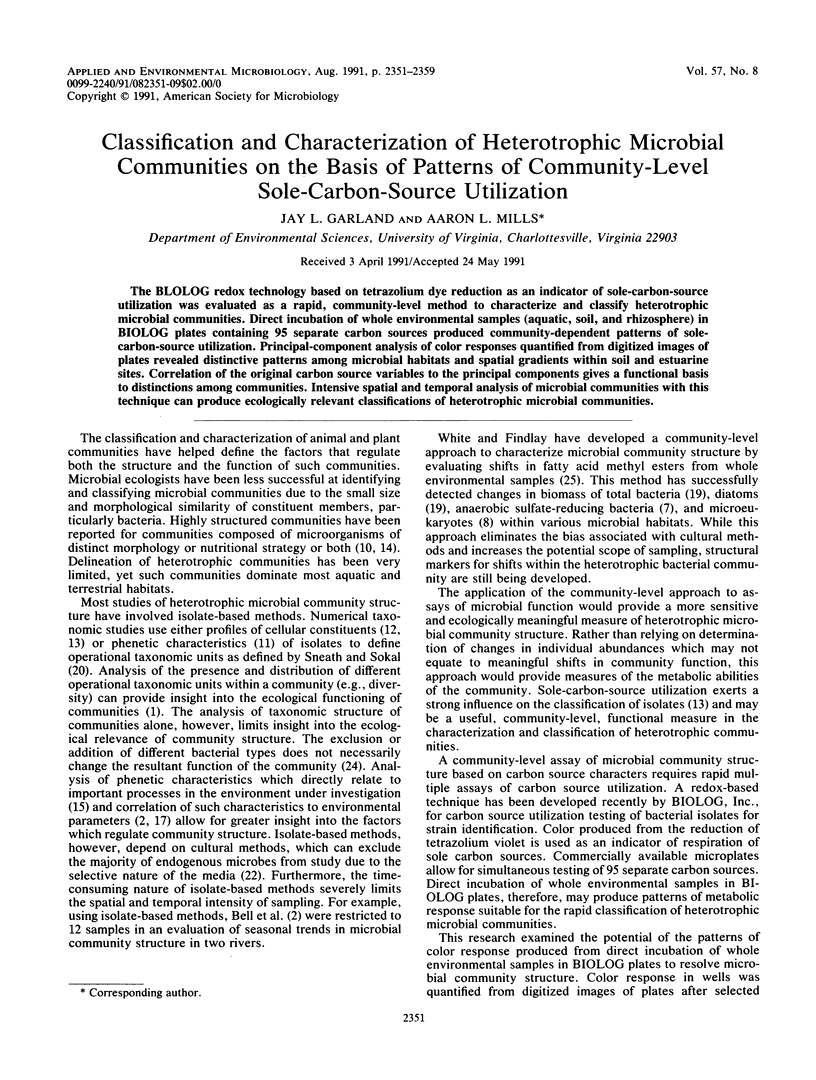
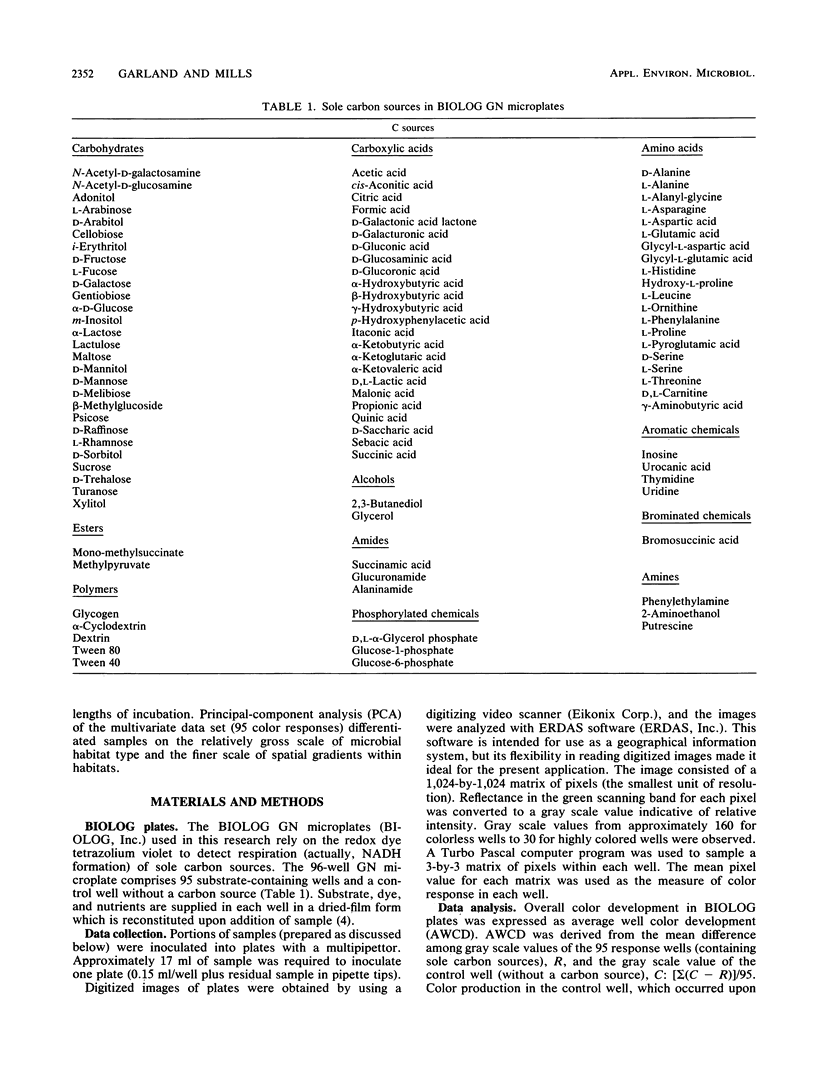
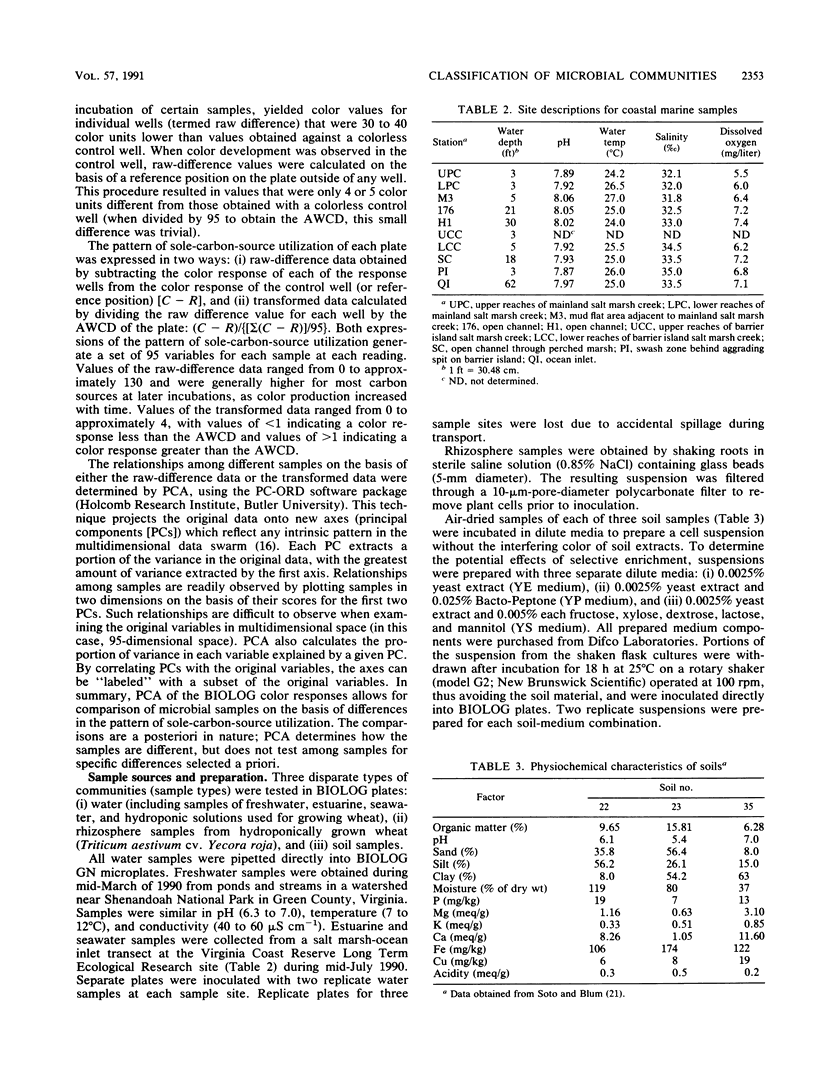
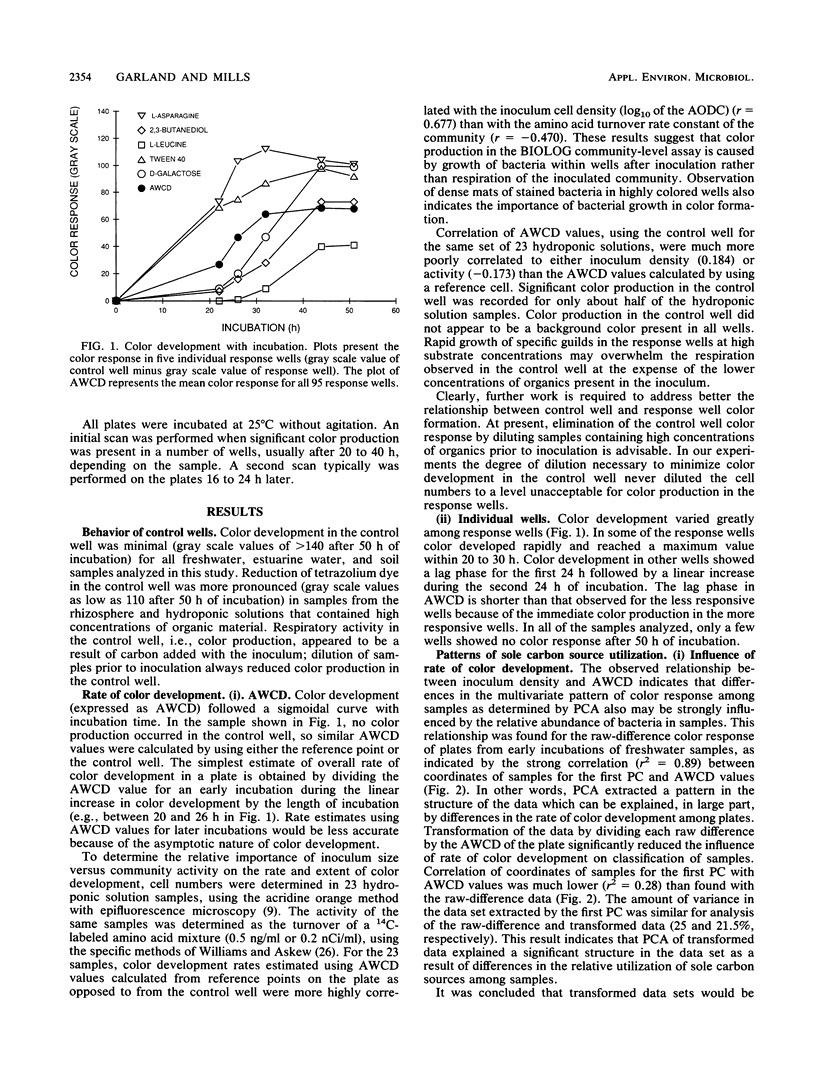
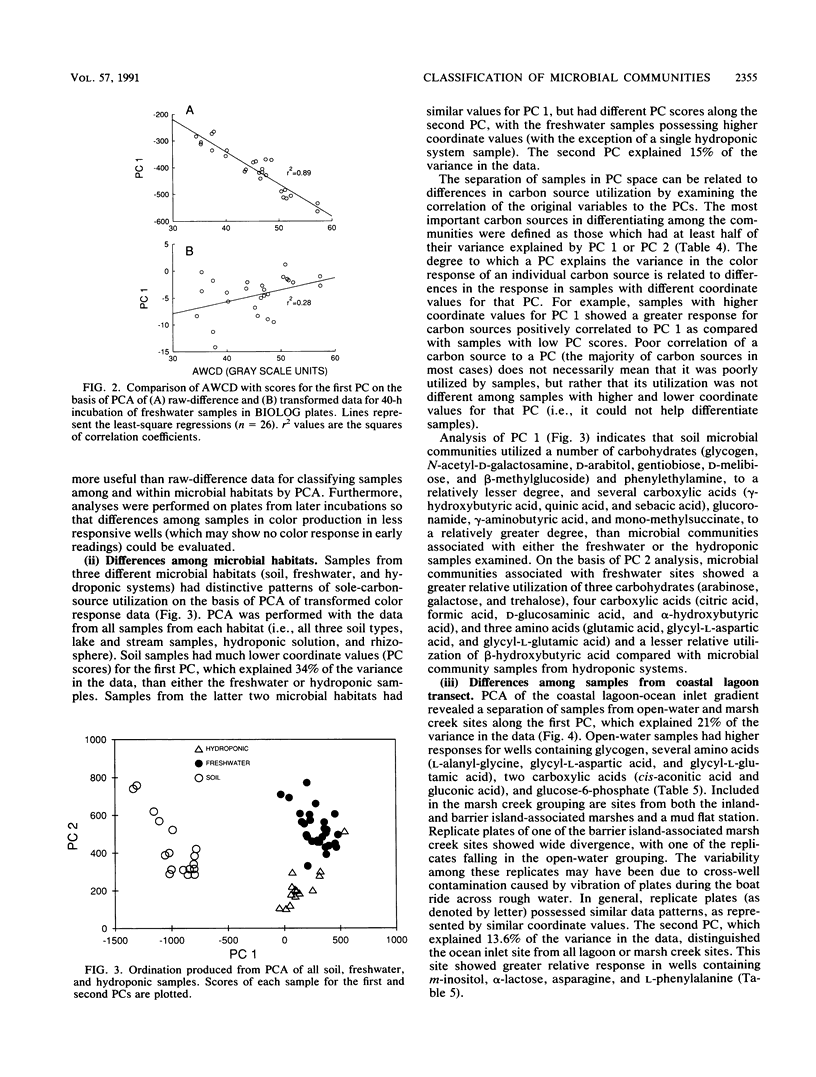
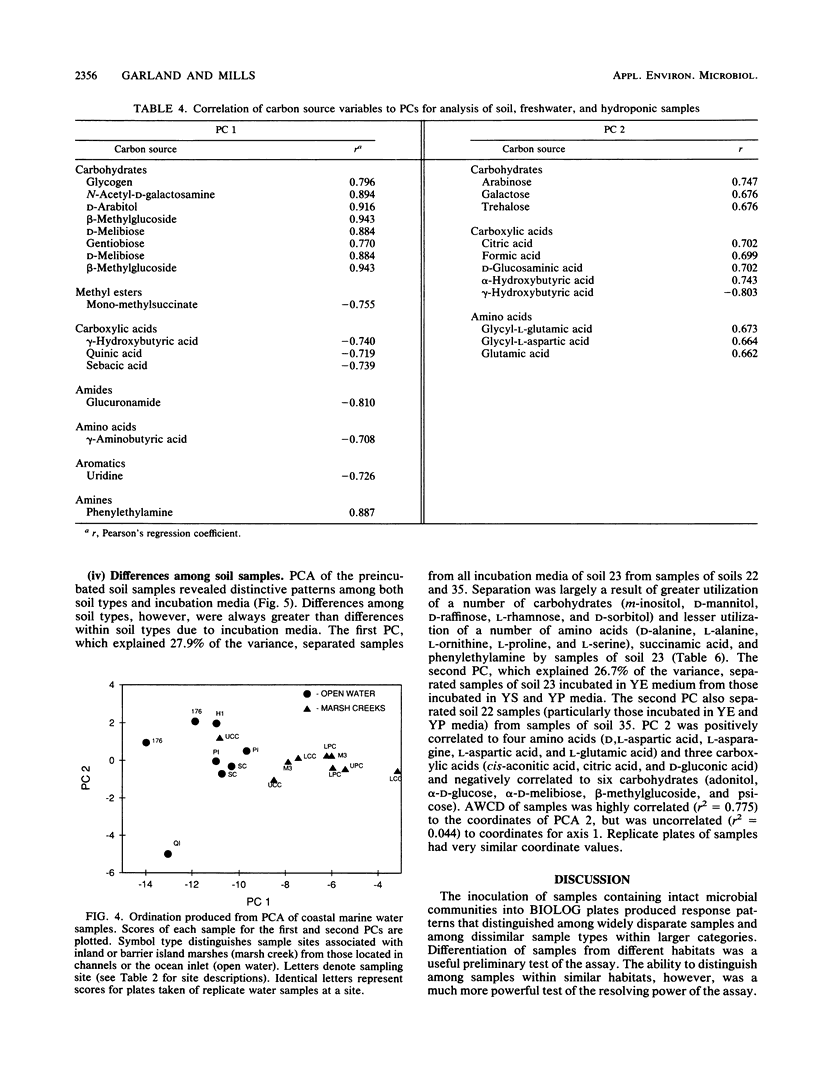
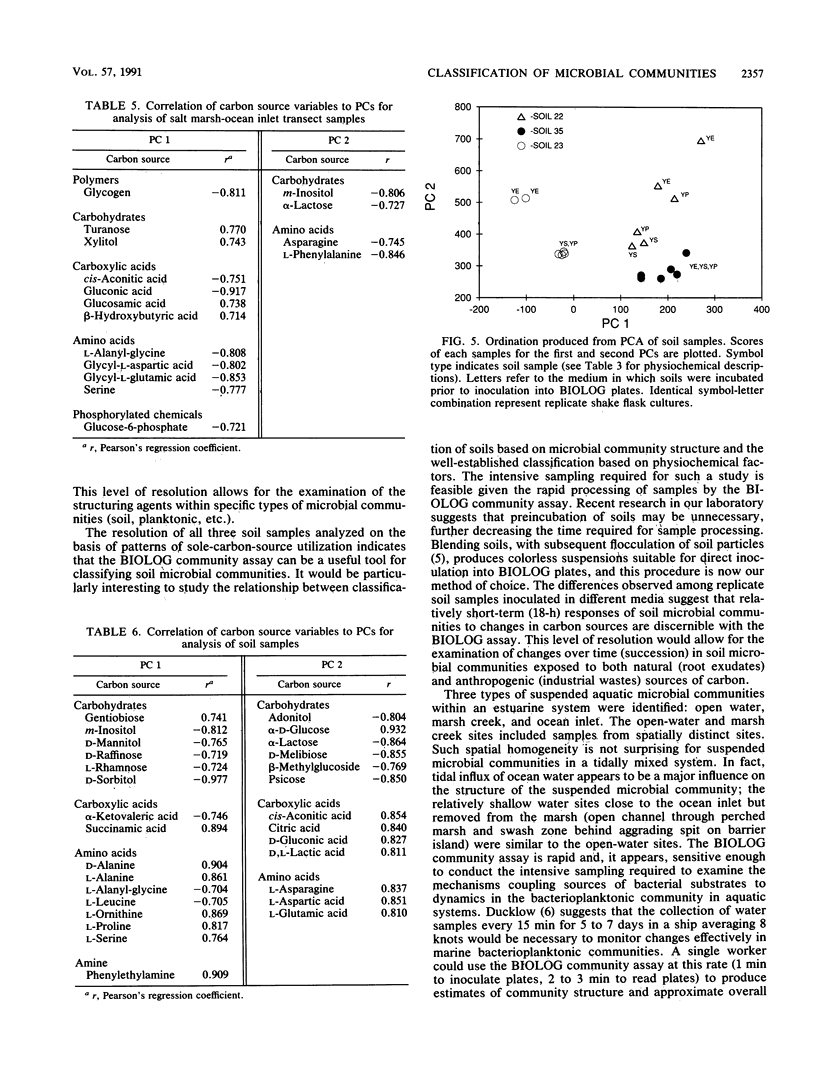
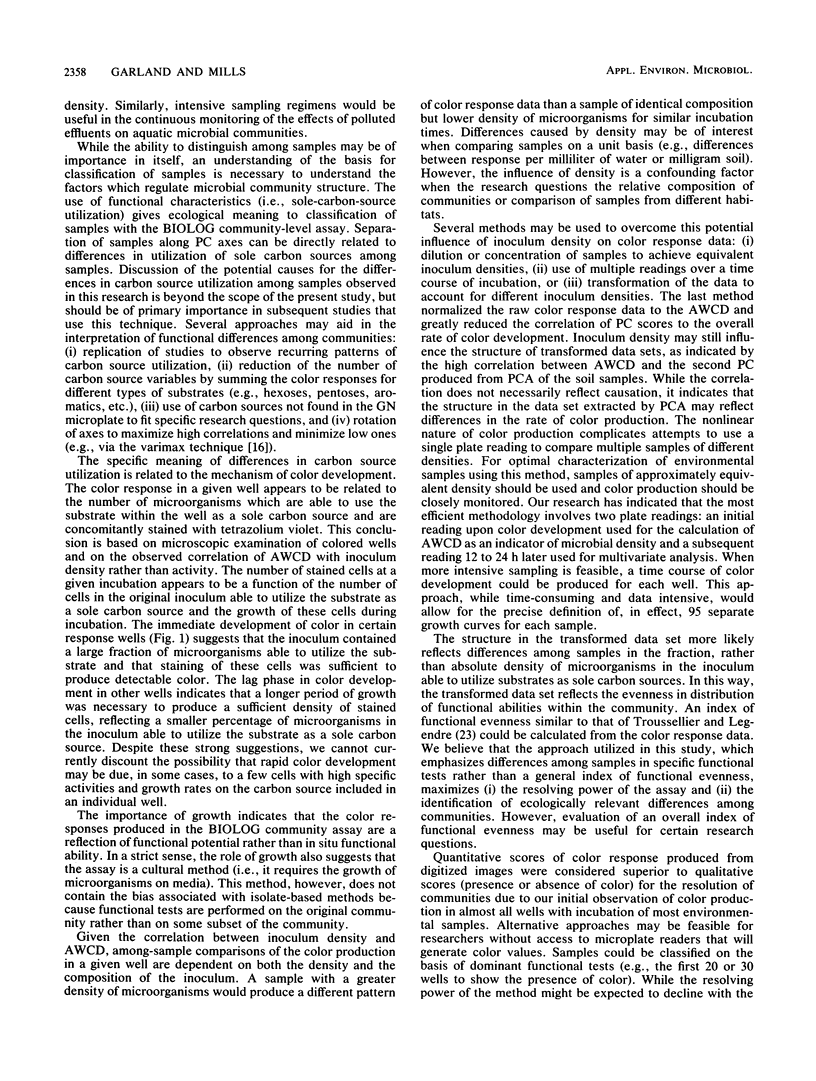
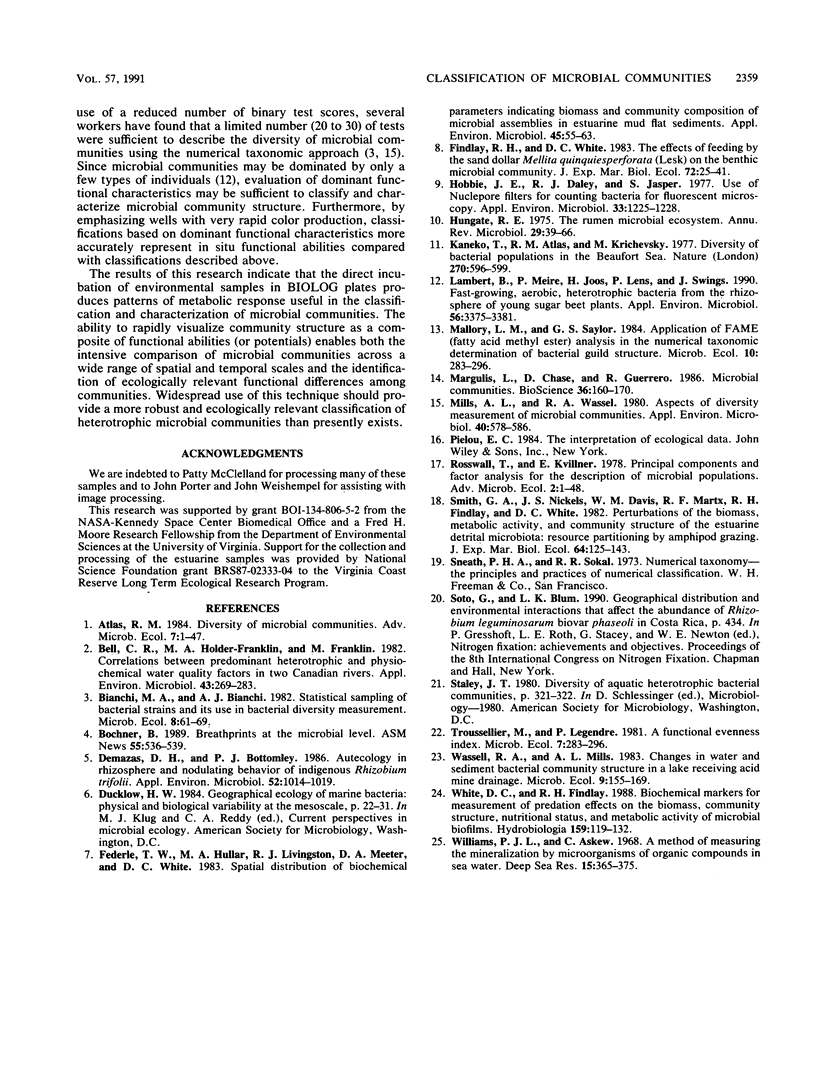
Selected References
These references are in PubMed. This may not be the complete list of references from this article.
- Bell C. R., Holder-Franklin M. A., Franklin M. Correlations between predominant heterotrophic bacteria and physicochemical water quality parameters in two canadian rivers. Appl Environ Microbiol. 1982 Feb;43(2):269–283. doi: 10.1128/aem.43.2.269-283.1982. [DOI] [PMC free article] [PubMed] [Google Scholar]
- Demezas D. H., Bottomley P. J. Autecology in Rhizospheres and Nodulating Behavior of Indigenous Rhizobium trifolii. Appl Environ Microbiol. 1986 Nov;52(5):1014–1019. doi: 10.1128/aem.52.5.1014-1019.1986. [DOI] [PMC free article] [PubMed] [Google Scholar]
- Federle T. W., Hullar M. A., Livingston R. J., Meeter D. A., White D. C. Spatial distribution of biochemical parameters indicating biomass and community composition of microbial assemblies in estuarine mud flat sediments. Appl Environ Microbiol. 1983 Jan;45(1):58–63. doi: 10.1128/aem.45.1.58-63.1983. [DOI] [PMC free article] [PubMed] [Google Scholar]
- Hobbie J. E., Daley R. J., Jasper S. Use of nuclepore filters for counting bacteria by fluorescence microscopy. Appl Environ Microbiol. 1977 May;33(5):1225–1228. doi: 10.1128/aem.33.5.1225-1228.1977. [DOI] [PMC free article] [PubMed] [Google Scholar]
- Lambert B., Meire P., Joos H., Lens P., Swings J. Fast-growing, aerobic, heterotrophic bacteria from the rhizosphere of young sugar beet plants. Appl Environ Microbiol. 1990 Nov;56(11):3375–3381. doi: 10.1128/aem.56.11.3375-3381.1990. [DOI] [PMC free article] [PubMed] [Google Scholar]
- Margulis L., Chase D., Guerrero R. Microbial communities. Bioscience. 1986 Mar;36(3):160–170. [PubMed] [Google Scholar]
- Mills A. L., Wassel R. A. Aspects of diversity measurement for microbial communities. Appl Environ Microbiol. 1980 Sep;40(3):578–586. doi: 10.1128/aem.40.3.578-586.1980. [DOI] [PMC free article] [PubMed] [Google Scholar]



